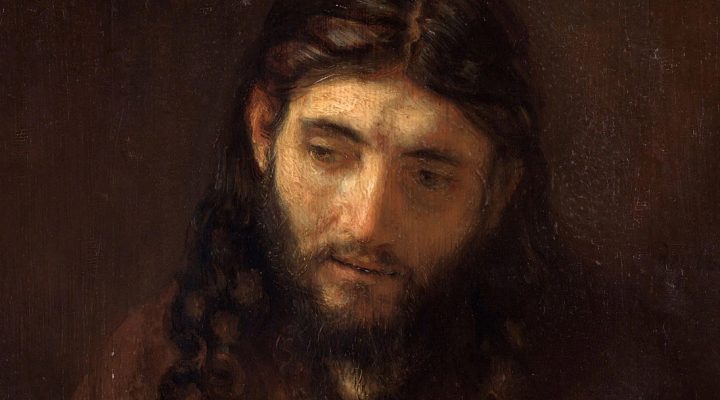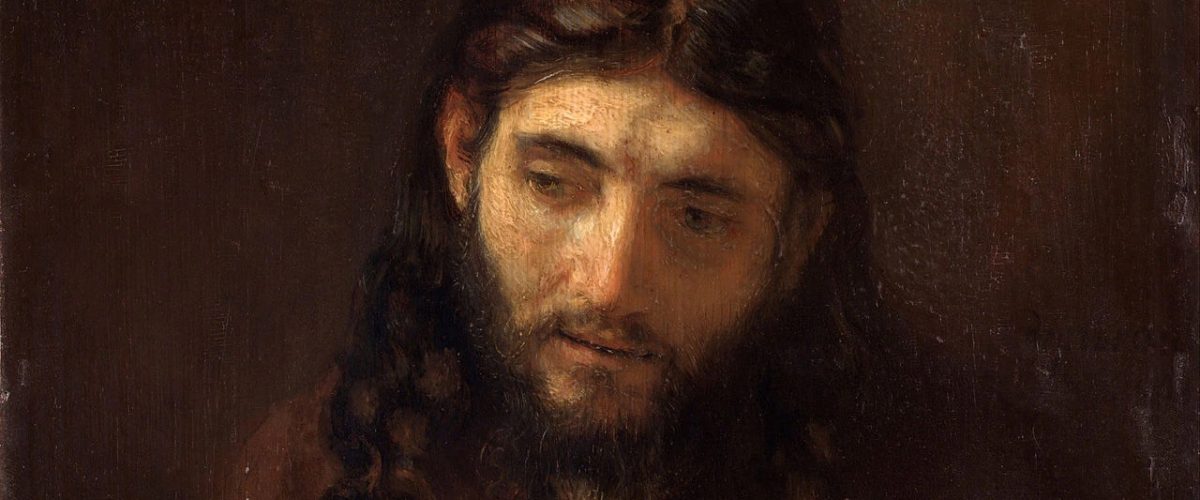“I ask not only on behalf of these but also on behalf of those who believe in me through their word, that they may all be one.” — John 17:20-21
John 17 often is labeled as Jesus’ “high-priestly prayer.” This is because he stands in the sight of God praying for his people. In this extraordinarily profound soliloquy, Jesus first prays that he will be glorified in his death, in order that his Father will be glorified. Next Jesus prays that his followers will be protected and sanctified. And in our focal passage, Jesus prays for all generations of his followers, that they would “become completely one.”
This is a prayer for Christian unity, the unity of all believers. Jesus asks that the unity he enjoys with the Father would be theirs.

David Gushee
This is available to the church through participating in the unity of the Godhead (reading verse 21 as “may they also be one in us”). Verse 22 expands the basis of Christian unity as relating to the “glory” — revelation of God’s splendor and power — that God has given Jesus. Jesus says he has passed this glory on to the disciples, for the purpose that “they may be one, as we are one.”
The purpose of Christian unity is described twice as evangelistic — “so that the world may believe that you have sent me” and “so that the world may know that you have sent me and have loved them even as you have loved me. But, as New Testament scholar Marianne Meye Thompson writes, “the mission of the disciples only expresses their unity; it does not create that unity,” which “exists, not because of human effort, but because of God’s life-giving love for the world that is expressed through and in the mission of Jesus.”
The Jesus we see in John is praying to his Father for the unity of believers. That unity is possible due to the nature of God the Father’s relationship with God the Son, a mystery (perhaps the universe’s very highest mystery) in which those whom the Son has gathered in community participate.
That relationship is understood as ineffably united, noncompetitive, mutually serving and loving. It is part of the “glory” of Christ, and Christ has passed it forward to his followers as a sublime expression of his love for them. This unity and the love that makes it possible demonstrate God’s glory and aid in the spread of belief in Jesus in the world.
“We are privileged to listen in on what God the Son is saying to God the Father before going to die.”
On one level, this is not a “moral teaching of Jesus.” Jesus is offering no moral imperatives here. This is part of a grand farewell prayer, part of a series of Jesus’ last requests to God his Father before going to the Cross. We are privileged to listen in on what God the Son is saying to God the Father before going to die.
But prayers also teach because they articulate earnest desire. A publicly articulated prayer teaches something about what that person considers important. If we go to church and the pastor prays that everyone present will become wealthy one day, the people learn from the pastor to value, pray for and seek wealth. Whereas if the pastor prays that everyone who has a conflict with a sister or brother would be reconciled, the people learn to value, pray for and seek peace.
In this way, through his prayer, Jesus is teaching the value of Christian unity. He yearns for this for his followers — that they “may become completely one.” This certainly seems to mean that we Christians also should desire oneness.
We should want it for the reason Jesus wanted it — because it bears a positive witness to God’s nature and love in Jesus Christ and thus has the potential to draw people toward God. We also should want it because it is mandatory that we be who Jesus says we are — participants in the oneness of God the Father and the Son, recipients of the glory the Father gave the Son and the Son gave us.
The Nicene Creed, formulated in 325 CE, confesses belief in “one, holy, catholic, and apostolic church.” In this sense the unity of the church is a matter of conviction, a belief confessed, like belief in the resurrection, ascension and future return of Christ. The creed does not say: “We have experienced” the oneness of the church, but instead “we believe” in it, just as we believe in the return of Christ that we have not yet experienced.
Yet this confession of faith in Christian unity also has rightly motivated numerous efforts to build such unity. Theologian David Ford notes:
This third part of John 17 has given perhaps the main biblical impetus to the ecumenical movement within Christianity, seeking ways to be one church together. … That movement has achieved things probably never before seen in religious history: Christian bodies with hundreds of millions of members have turned from confrontation and sometimes conflict toward conversation, frequently with collaboration, and in some cases have joined one another in full mutual recognition and sometimes even institutional unity.
But sadly, Ford also notes the “innumerable splits, divisions and conflicts” within the church — these included splits within the Johannine community itself. Divisions, schisms, conflicts, controversies, sects, split-offs, firings, broken relationships, shattered congregations, doctrinal fights, hardened battle lines and so on have indeed characterized so many of our churches. We must acknowledge the empirical reality of Christian disunity. It contrasts so starkly with Jesus’ prayer for unity here.
I wonder if Jesus, in this prayer, already was pointing obliquely but realistically to the tremendous difficulty of human beings in finding and maintaining unity. One could read his prayer something like this: O Father, I call on all the spiritual riches and mysteries and glories of our relationship with each other to fall upon these inheritors of our mission and ministry. They are going to need every bit of it, and still they often will fall short, because they are human beings in all their brokenness.
It may not be all that different from Jesus’ request just before — that every believer would be protected and sanctified in the truth. Experientially, we know that many of us fall prey to temptation, lies, unholiness and disbelief. Jesus prays for what he wants, and we need, but even his prayer is not fully answered. Think about that!
“Because many Christians disagreed with me, therefore I was supposed to stand down from the fight against torture. Ha!”
One word of warning: Some of us have learned to be suspicious of calls for Christian unity amid conflicting convictions. My favorite personal example is this: When I felt called by God to oppose U.S.-sponsored torture of detainees after the 9/11 attacks, one criticism offered by some fellow Christians was that my stand violated Christian unity. Because many Christians disagreed with me, therefore I was supposed to stand down from the fight against torture. Ha!
Arguments hushing dissent and blocking reform in the name of unity have been made in a variety of Christian settings. There is little question that the norm of Christian unity is often leveraged to silence dissent. This hushing can delay progress for marginalized people and groups within our churches and society at large.
Surely this wasn’t the kind of “unity” for which Jesus was praying — a lockstep conformity of all opinions, with built-in resistance to change. A mutually respectful, open-hearted, other-regarding, familial and affectionate bond of fellowship is what Jesus desired for his followers.
In sum: Jesus prays for Christian unity, and a theological conviction about the unity of the church is a historic part of Christian confession. Peace and unity are not easy, and Christians often are bitterly divided. But every time we Christians bear with one another, choose to seek peace and remain in relationships that defy our natural human tendencies, something special is happening. At these times, we see Jesus’ prayer being answered. We must never give up the quest for Christian unity.
This post is drawn from the author’s forthcoming work, The Moral Teachings of Jesus. That book will treat 40 sayings of Jesus and consider their moral significance.
David P. Gushee is a leading Christian ethicist. serves as distinguished university professor of Christian Ethics at Mercer University, chair of Christian social ethics at Vrije Universiteit Amsterdam, and senior research fellow at International Baptist Theological Study Centre. He is a past president of both the American Academy of Religion and the Society of Christian Ethics. His latest book is Introducing Christian Ethics. He’s also the author of Kingdom Ethics, After Evangelicalism, and Changing Our Mind: The Landmark Call for Inclusion of LGBTQ Christians. He and his wife, Jeanie, live in Atlanta. Learn more: davidpgushee.com or Facebook.


